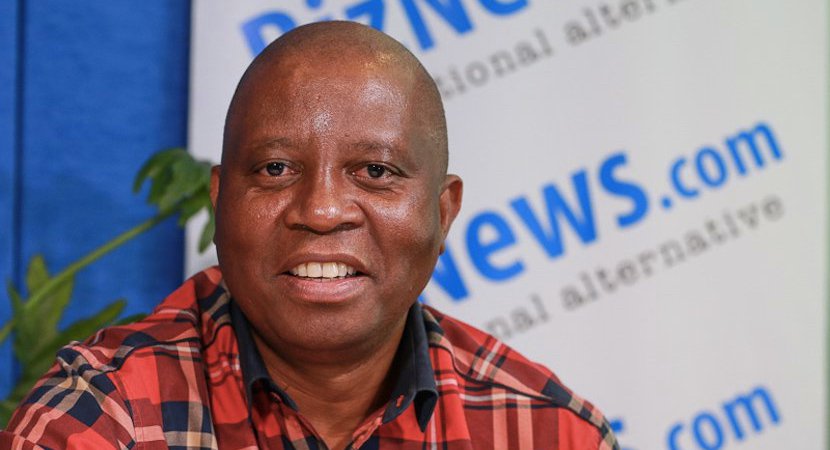By Tafi Mhaka
Herman Mashaba, the Black Like Me magnate, has, since his tenure as the mayor of Johannesburg began in August 2016, played his trump card again and again and rallied against undocumented immigrants. Like President Trump discovered in the past, Mashaba has found his ‘Mexicans’ – or call them handy scapegoats: they are the undocumented immigrants who live in Johannesburg.

While Mashaba stopped short of promising to build a wall in a press conference, last year, he did launch his war against undocumented migrants, calling them “criminals” and accusing them of hijacking the “inner city”.
He said: “I’m declaring war on criminality in our city. I will use every available legal process to ensure we get rid of these criminal elements. I know it’s not going to be an easy exercise and I know some people might think we are hard, heartless. No, we are doing this because we love our country and our people. We don’t want to see our people living under these appalling conditions, being made to pay rentals to slumlords and criminality and we sit back and say they have the right.”
The phenomenon of illegal migration is not limited to Johannesburg: the UN Refugee Agency (UNHCR) reports there are 65,3 million displaced in the world. Of these, 21,3 million people are refugees, over half of who are under the age of 18.
In December 2015, the UNHCR released a report, which estimated South Africa is home to one million asylum-seekers. That is a vast number of migrants seeking refuge by any standard of measure. South Africa does in fact have the largest number of asylum seekers in the world according to the report.
That is, it hosts more aspiring refugees than countries like the USA and Germany: states that have much larger human capital and material resources to allocate to the welfare of asylum-seekers. The refugee situation is pretty dire for the Southern African nation, as wars in Sudan, South Sudan, DRC and Somalia have not only triggered mass displacements of civilian populations in Central and East Africa, but also exacerbated a refugee crisis that extends all the way to South Africa.
This refugee crisis is further swelled by economic migrants from SADC nations like Zimbabwe, Mozambique, Zambia, Swaziland and Lesotho who are keen to work in the richest and most diversified economy in Africa – much in the same manner economic migrants from Mexico and Latin American states like Colombia, El Salvador, Honduras and Brazil are drawn to find work in the biggest economy in the world – in the USA.
But there is a distinction between an asylum-seeker and a refugee. While the latter is a migrant who has fled their country for fear of prosecution and has been granted asylum or refugee status, the former is still seeking permission to stay in a country.
Also remember that, strictly speaking, economic migrants do not enjoy the rights enshrined in the 1951 Refugee Convention, which seeks to help “someone who is unable or unwilling to return to their country of origin owing to a well-founded fear of being prosecuted for reasons of race, religion, nationality, membership of a particular social group, or political opinion”.
This explains why the Department of Home Affairs rejects 90% of applications made for refugee status in South Africa. But South Africa is a signatory to the UN Refuge Convention and is obliged to facilitate and process refugee applications. So, as at the end of 2015, one million asylum-seekers had lodged applications at Home Affairs and were awaiting the outcomes of their applications. But does it mean one million undocumented migrants are criminals?
Yes, you will find criminal elements in any significant population of people. So you will find criminal elements posing as would-be refugees and attempting to beat the asylum application system in South Africa. But there is a likelihood that most migrants are honest people who are desperate for a fresh start in life in South Africa for a host of reasons and the link between no documentation and criminality is tenuous at best and highly inaccurate.
In June then-South African Justice and Correctional Services Minister Michael Masutha revealed that out of a prison population of 161,984 prisoners, 11,842 were foreign nationals convicted of criminal offences ranging from murder, rape and crimes against the safety of the state. 41% of these criminals were Zimbabweans and 24% were Mozambicans.
But there are a lot of Zimbabweans living and working in South Africa legally. According to a statement released by the minister of home affairs on September 9, 2017, 197 941 Zimbabweans were issued with Zimbabwean Special Permits (ZSP) in 2014 – and the facility is currently being extended for a further three years.
So while sweeping statements made by Mayor Mashaba, much like the statements Trump made prior to his electoral victory last November, hold water, they do paint an extremely imprecise portrait of the bigger picture at hand.






